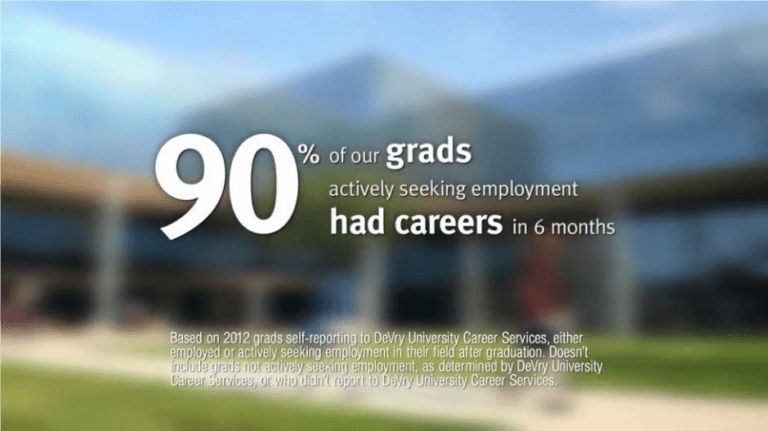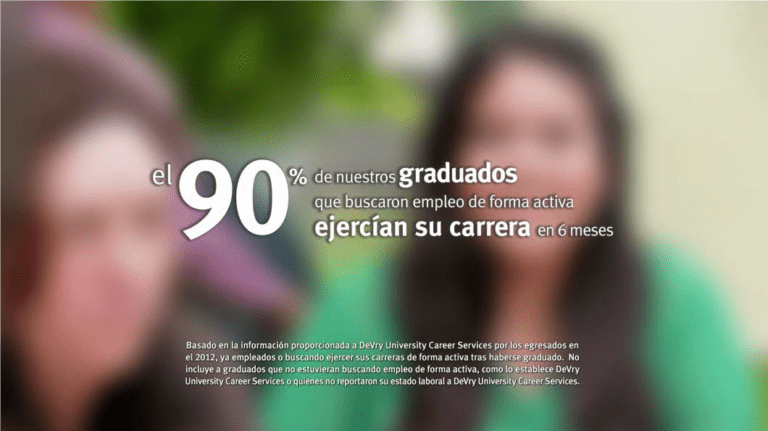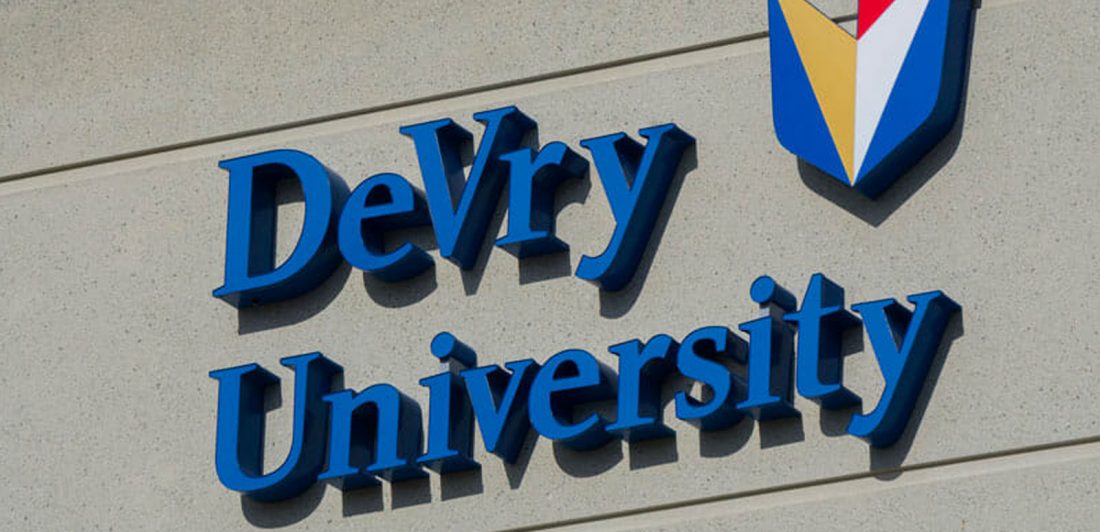Austin, TX (July 24, 2018) — Attorney John Fabry of The Carlson Law Firm has filed a lawsuit on behalf of Texas residents who have fallen victim to the predatory practices of DeVry University— the for-profit institution that has recently seen itself embattled with numerous allegations of fraud, including by the Federal Trade Commission (FTC). The Texas case comes as the Trump Administration has taken actions to decrease the regulatory oversight of for-profit colleges, including the dismantling of the regulatory team charged by the Obama Administration with investigating deceptive advertising, recruitment practices, and job placement claims. The Texas case against DeVry alleges that the for-profit giant engaged in deceptive marketing practices to lure prospective students by severely inflating the success rate of job placements and earnings of graduates through an aggressive marketing scheme grounded on deceptive data and flawed methodologies.
https://mobile.nytimes.com/2018/05/13/business/education-department-for-profit-colleges.html
Mr. Fabry filed the complaint in late January on behalf of 66 plaintiffs who accrued tens of thousands of dollars in student loan debt after earning degrees from DeVry institutions throughout Texas. These graduates, and others currently joining in the action, were unable to secure employment within their fields of study as touted by DeVry, and must now face a lifetime of mounting student loan debt while enduring grim employment prospects. A similar lawsuit on behalf of former DeVry students in California will be filed by Mr. Fabry and his team in the coming weeks.
The lead Plaintiff in the Texas case, Luis Rangel, is a graduate of DeVry University- San Antonio, who earned both bachelor’s and master’s degrees in Network and Communications Management—accruing over tens of thousands of dollars in student loan debt. In choosing to enroll at DeVry, Mr. Rangel relied on the misrepresentations in DeVry’s widespread marketing campaign and aggressive recruiting tactics, which conveyed the message that DeVry graduates enjoyed enviably high employment rates and top starting salaries. Despite these assurances, Mr. Rangel, like so many others, was unable to secure employment within his field of study within six months of graduation at a top starting salary, as advertised.
The Texas action, filed in federal court in San Antonio, seeks to recover damages from DeVry’s parent corporation, Adtalem Global Education, Inc. and DeVry University for violations of the Texas Deceptive Trade Practices-Consumer Protection Act (DTPA), fraud, negligent misrepresentation and restitution for unjust enrichment. The suit alleges that DeVry’s marketing misled prospective students about the benefits of a DeVry degree. For instance, DeVry falsely represented that 90 percent of its students actively searching for employment gained a position in their field of study within six months of graduation.


In addition, DeVry misrepresented that its graduates enjoyed higher salaries than graduates of other colleges and universities, promoting false claims such as, “One year after graduation, DeVry University grads report earning 15% more than median earnings reported by all other bachelor’s degree graduates.”


In its recruiting efforts, DeVry specifically targeted students from low income and minority communities, launching an aggressive campaign to lure students from the Latinx community in an elaborate Spanish-language marketing scheme that echoed the English-language campaign with claims such as “el 90% de nuestros graduados que buscaron empleo de forma activa ejercían su carrera en 6 meses.”

These misrepresentations were aggressively disseminated to induce prospective students to enroll at DeVry, through various media outlets, including television ads, websites, YouTube videos, marketing brochures, print advertisements, radio ads and in person by DeVry recruiters and admissions counselors.
In 2016, the FTC filed a lawsuit against DeVry after a two-year investigation into its deceptive marketing scheme. According to the FTC, DeVry falsified the numbers underlying its “90 percent employment within six months” claims, by counting students already employed prior to enrolling at DeVry, as well as students underemployed outside their field of study.
The FTC suit settled in 2017 for a reported $100 million, though the agreement failed to provide defrauded students with much-needed full student loan forgiveness—a critical element of the Texas case filed by Mr. Fabry. In fact, the students involved in the FTC case received, on average, only a $280 refund from the settlement. These students, however, are not precluded from seeking additional redress through civil actions such as the one filed in Texas.
The Obama Administration enacted several regulations aimed at protecting students from the predatory practices of for-profit colleges, which are now under attack by the Trump Administration under Education Secretary Betsy DeVos. For example, the Obama Era’s “gainful employment” rule, required schools to meet certain enumerated criteria before becoming eligible for federal funding under the Higher Education Act.
In 2017, attorneys general from 17 states and the District of Columbia filed a lawsuit against Education Secretary Betsy DeVos, alleging she purposely delayed the enforcement of oversight regulations intended to cut federal funding to under-performing for-profit colleges that saddled students with massive education loans while failing to prepare them for gainful employment.
http://time.com/4987630/state-lawsuit-betsy-devos-for-profit-college/
For-profit colleges account for a disproportionate amount of federal student loan defaults. These colleges enroll about 11 percent of students nationally, yet they account for 44 percent of all defaulted student loans. The Trump Administration now wants to make it more difficult for defrauded students to recover damages, including federal student loan forgiveness, when they fall prey to the for-profit college industrial complex.
The Texas case against DeVry University is Civil Action No. 5:18-cv-00082-DAE; Luis Rangel, et al. v. Adtalem Global Education, Inc. and DeVry University, Inc.; In the United States District Court, Western District of Texas, San Antonio Division.
About The Carlson Law Firm:
The Carlson Law Firm is a Texas-based national law firm committed to providing exceptional legal services in the areas of personal injury, medical malpractice, dangerous drugs and defective products, mass torts, bankruptcy, family law, criminal defense, military criminal defense, nursing home abuse and consumer protection. The Carlson Law Firm has been successfully representing clients for over 40 years with 12 offices all over Texas. We Care. We Can Help.
To schedule An Interview With John Fabry please contact:
Kazia Conway
254-526-5688
kconway@carlsonattorneys.com
Image Source:
FTC Complaint for Permanent Injunction and Other Equitable Relief, Case No. 2:16-cv-00579-MWF-SS.





